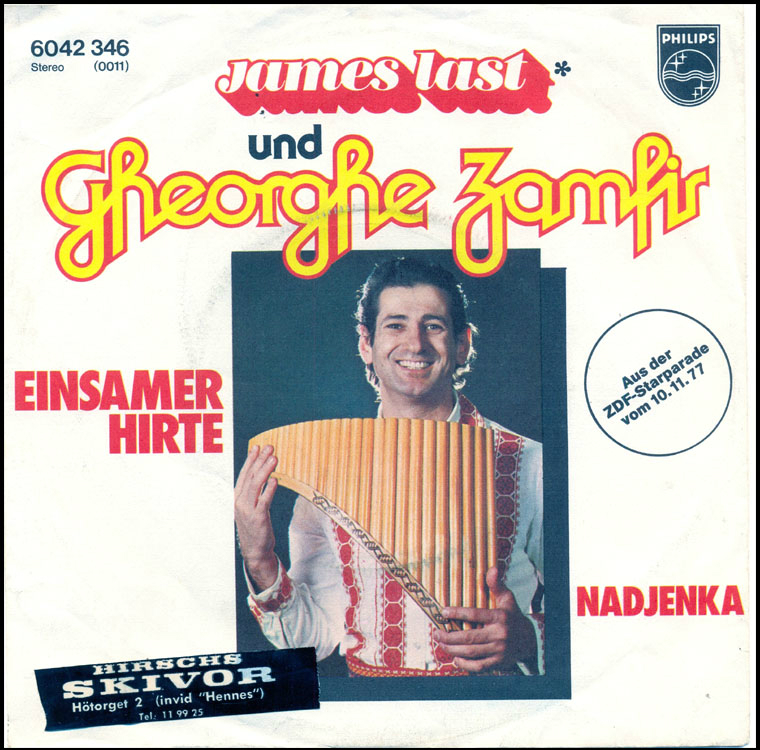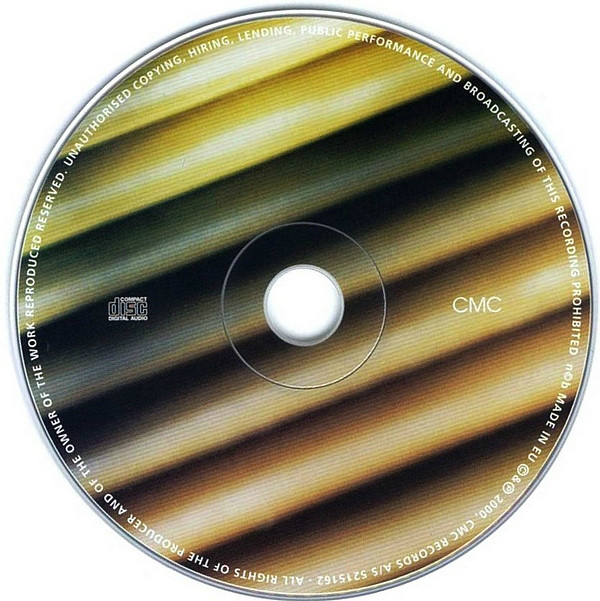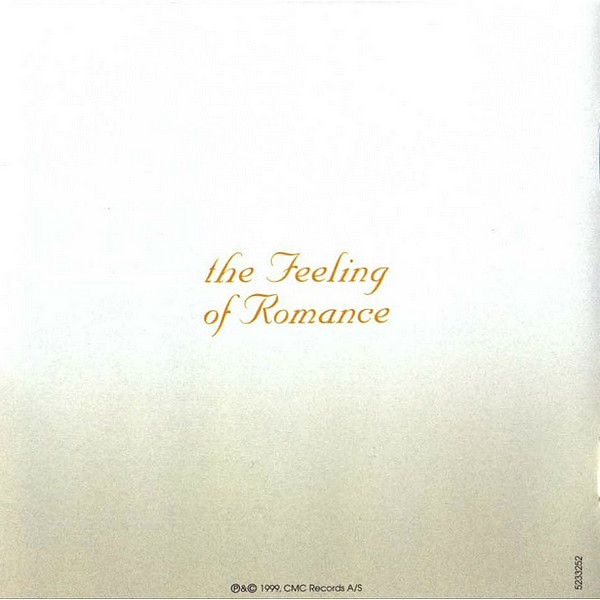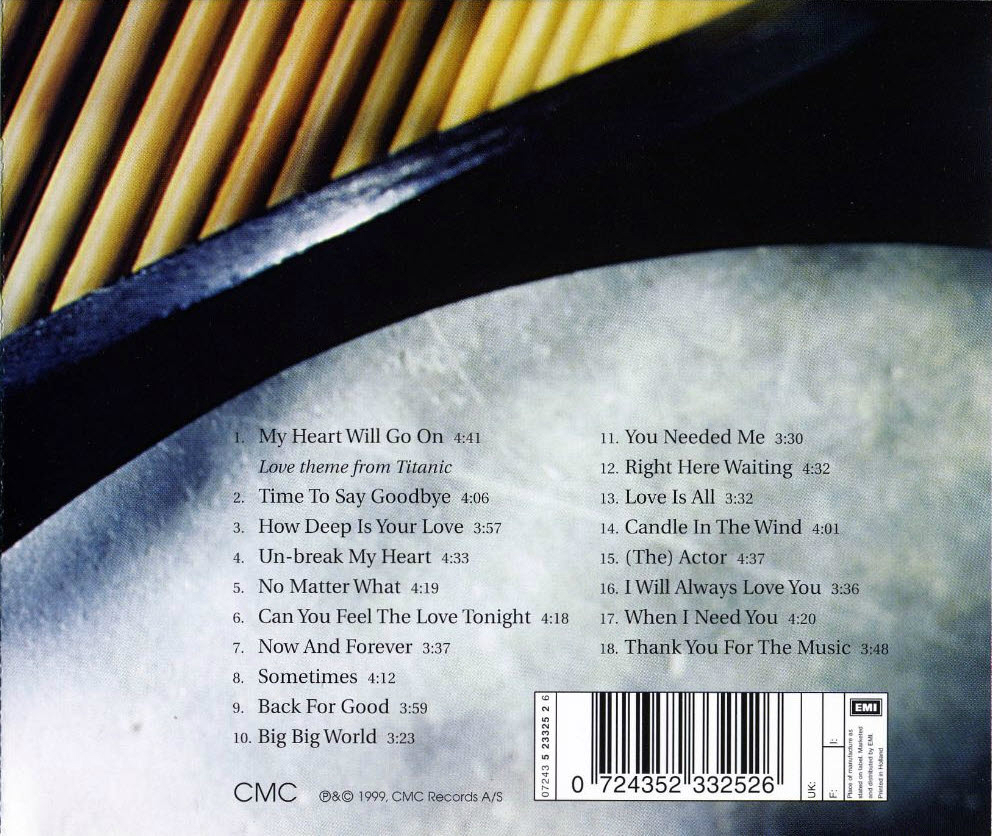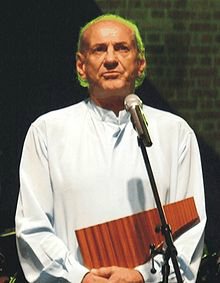Album Title: The Feeling Of Romance
Einsamer Hirte (1977) - James Last Und Gheorghe Zamfir
Artist Gheorghe Zamfir (Panpipes)
"고독한 양치기"로 우리와 친숙한 팬플룻의 대가 게오르그 장피르! 한국인이 좋아하는 연주인 2위에 오른 그가 귀에 익은 팝명곡들을 체코 프라하 오케스트라와 함께 무더운 여름밤을 시원하고 정겹게 수놓아 드립니다.
Gheorghe Zamfir (April 06, 1941 - Gaiesti, Romania)
Thanks to countless TV ads hawking collections of his music, Zamfir is almost universally recognized as the "Master of the Pan Flute." While that title may be cause for smirking in some quarters -- whether because of its overexposure or a general distaste for easy listening music -- it's true that Gheorghe Zamfir was single-handedly responsible for popularizing an ancient, traditional Eastern European instrument that was in danger of dying out for lack of interest. Made of bamboo, reeds, or wood, the pan flute (also known as the pan pipes or the nai) consists of a series of tubes, each of which sounds one individual note, and are fastened together side by side. It produces an ethereal, haunting sound, and since its construction makes the execution of up-tempo passages nearly impossible, it's ideal for the sort of slow, tranquil mood music that constituted Zamfir's stock in trade. At first focusing on Romanian folk melodies, classical material, and original compositions, Zamfir's popularity in Europe and America led him to cover pop songs, soundtrack themes, and the like, all supported by soft, lush orchestral arrangements. Gheorghe Zamfir was born in Gaiesti, Romania, on April 6, 1941. Interested in music from a young age, he learned to play gypsy songs on the accordion while tending his family's goat pasture. At 14, his father enrolled him at the Bucharest Academy of Music, where he switched to the pan flute under the influence of instructor Fanica Luca. He immediately displayed a gift for the nearly forgotten instrument, quickly learning to bend pitches and improvise (skills that were rarely associated with it). He went on to study at Conservatory of Bucharest, where he learned music theory, piano, and conducting. While a student in the '60s, he toured and made some recordings in tandem with Luca; those recordings were discovered by Swiss musicologist Marcel Cellier, who broadcast a radio show devoted to Eastern European folk music. Cellier, who also played the organ, invited Zamfir to Switzerland in 1969, and the two began performing duo concerts together. In the meantime, Zamfir also took over conductorship of the Romanian folk ensemble Ciocirlia, and in 1970 formed his own ensemble. Cellier produced Zamfir's earliest recordings in 1970-1971, and helped promote him around Europe, which led to several releases on the Philips label. Zamfir caught his big break in the English-speaking world when the British religious television show The Light of Experience adopted his recording of "Doina De Jale" -- a traditional Romanian funeral song -- as its theme. Popular demand forced Epic Records to release "Doina De Jale" as a single in 1976, and it climbed all the way to number four on the U.K. charts. It would prove to be his only hit single, but it helped pave the way for a consistent stream of album sales in Britain, Australia, America, and continental Europe over the next few decades. The biggest of those albums included Solitude (1973), The Romance of the Panflute (1982), and The Lonely Shepherd (1984). Additionally, he scored several films -- most notably 1975's Picnic at Hanging Rock, directed by Australia's Peter Weir -- and had a European hit in 1979 with the theme from the Dutch film Der Verlaten Mijn, a collaboration with arranger James Last. He staged numerous world tours and performed at Carnegie Hall for the first time in 1981; by this time, classical adaptations were coming to dominate his repertoire, which separated him technique-wise from the raft of mostly European imitators that had sprung up during the late '70s. Many of Zamfir's recordings aimed to create a sense of spiritual tranquility, and some of his compositions were religious in nature. That preoccupation resulted in his exile from Romania in 1982, when he violated official Communist doctrine by declaring at a concert that his music was dedicated to God. He emigrated to Montreal, where Western popular music crept ever more firmly into his choices of material. In the United States, ubiquitous TV commercials for his albums made Zamfir a household name. He played on much of Bill Conti's score for The Karate Kid in 1984, and that year also performed the theme for Sergio Leone's once Upon a Time in America. Zamfir subsequently settled into a comfortable, consistent recording schedule, turning out new product on a regular basis for a variety of labels. ~ Steve Huey

|
'연주곡 100곡' 카테고리의 다른 글
| 할아버지의 낡은 시계 - Mantovani and Hit Orchestra (1959 London Decca) (0) | 2019.04.05 |
|---|---|
| 앨범: 경음악 모음집 - Various Artist (2010 어리버리 돈키호테) (0) | 2017.10.18 |
| 앨범: Paul Mauriat Best - Paul Mauriat & His Orchestra (2010 어리버리 돈키호테) (0) | 2017.10.18 |
| 한국인이 좋아하는 베스트 연주곡 100선 - 어리버리 돈키호테 (2006) (0) | 2016.01.08 |
| 추억의 폴모리아 연주곡 등... (2015 퍼옴) │ 2016 수정본 (0) | 2015.01.29 |

